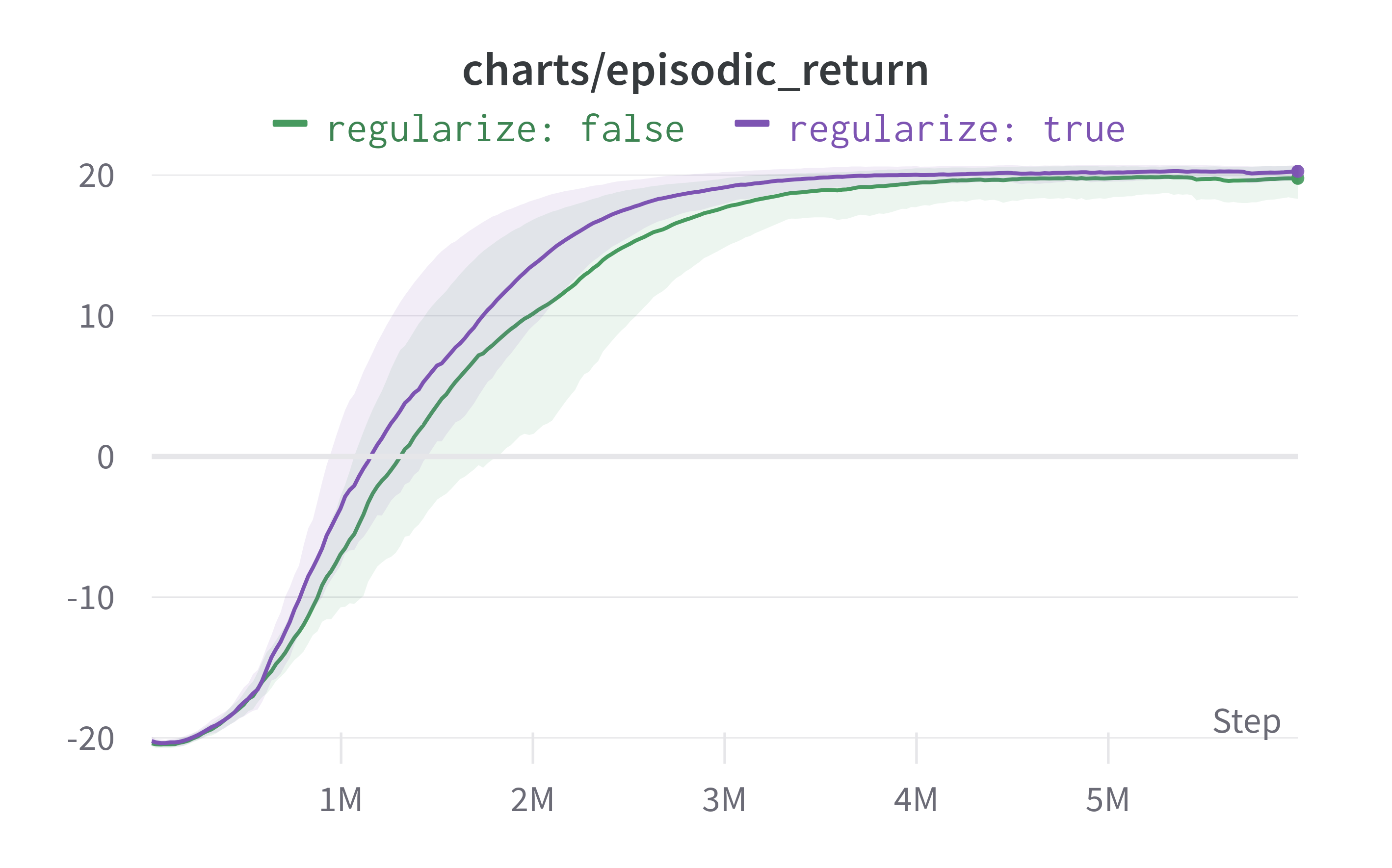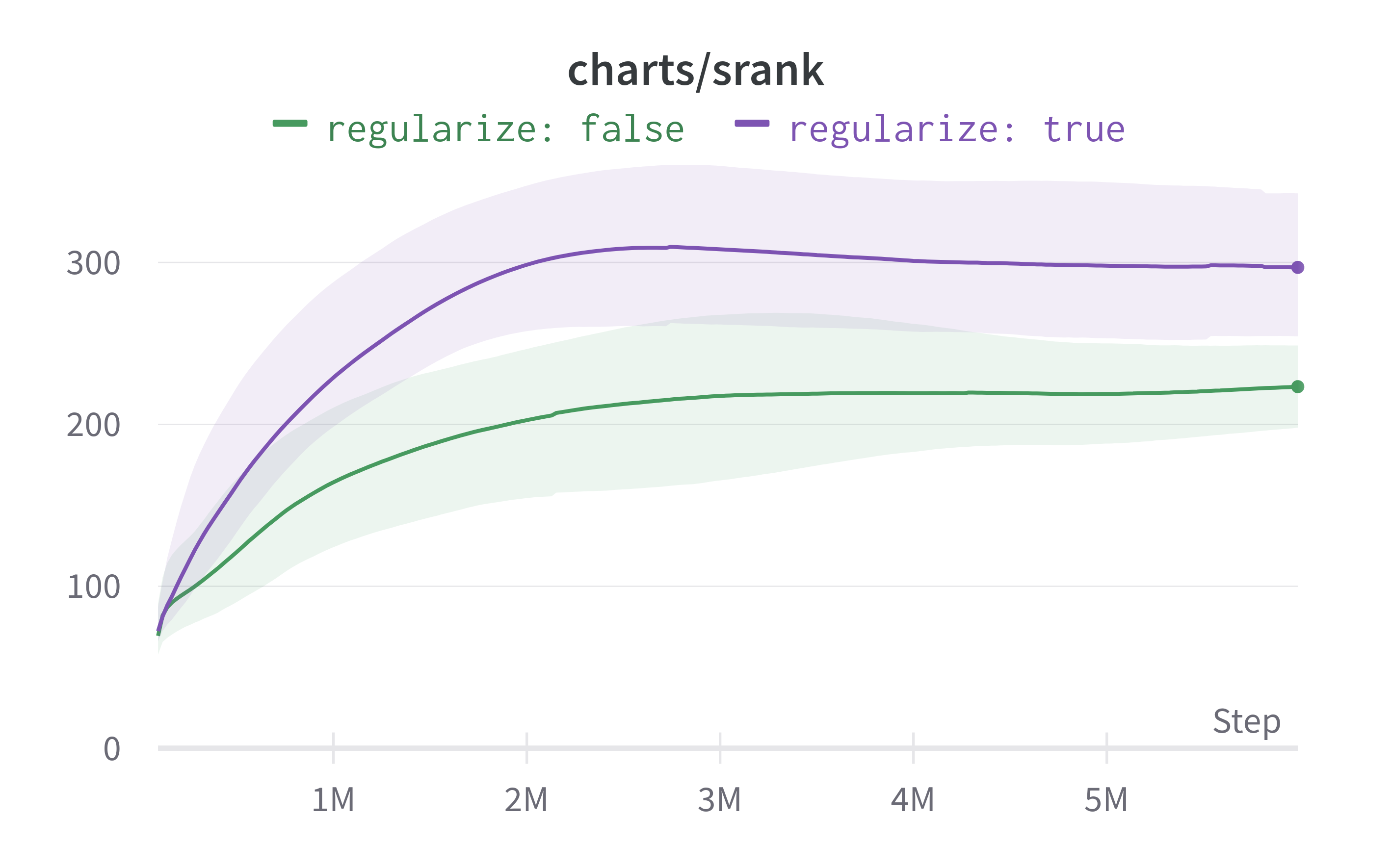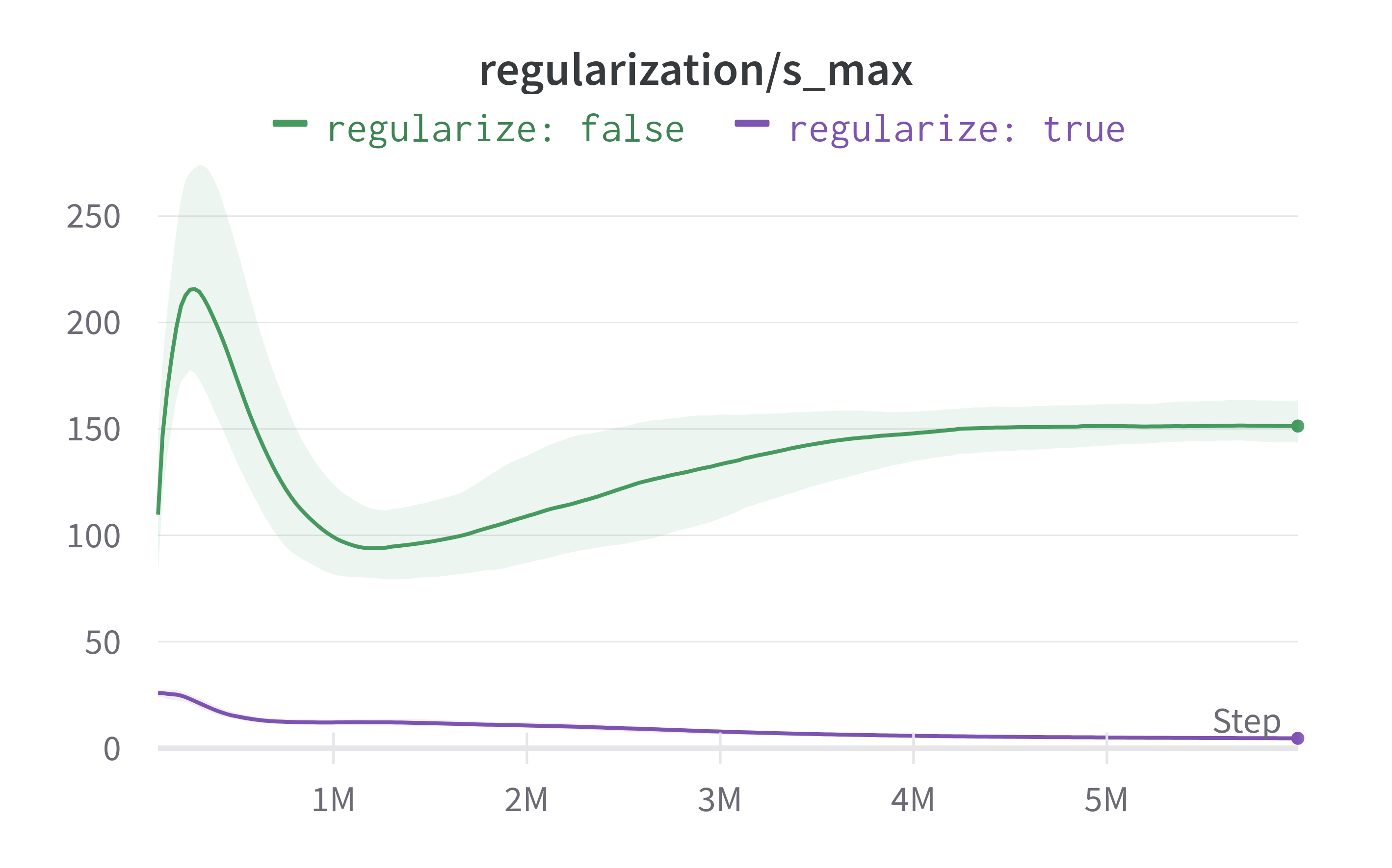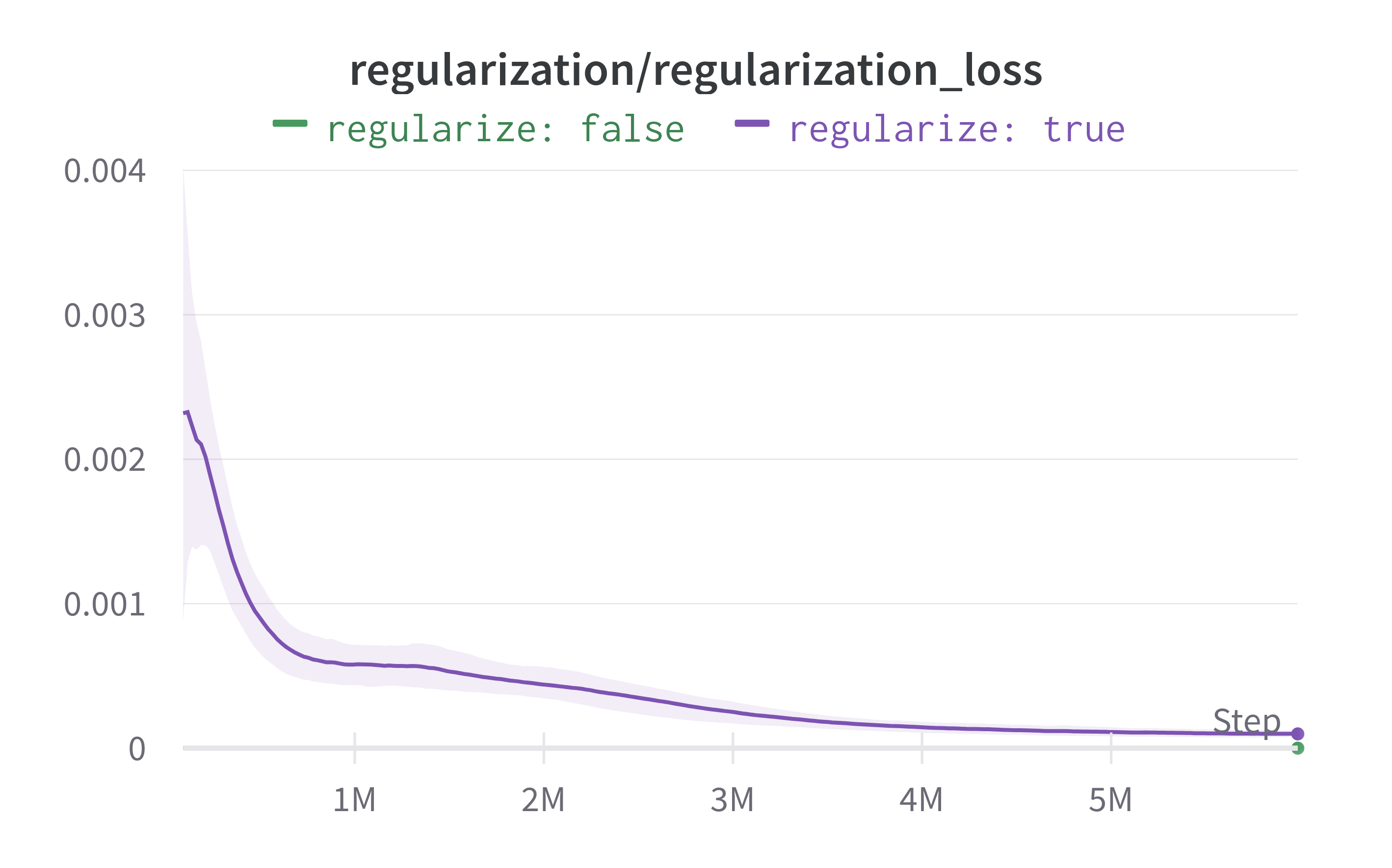This repository contains a Pytorch reimplementation of the feature regularization technique from the paper
Implicit Under-Parameterization Inhibits Data-Efficient Deep Reinforcement Learning.
The authors observe that performance plateaus/declines in value-based deep RL algorithms are linked to a collapse in effective
feature rank (defined below). This in turn is induced by an explosion of the largest singular values of the feature matrix (
The paper defines effective feature rank as the number of normalized singular values such that their sum exceeds a threshold
$$\text{srank}\delta (\Phi) = \min \bigg{ k: \frac{\sum{i=1}^k \sigma_i (\Phi)}{\sum_{i=1}^d \sigma_i (\Phi)} \geq 1 - \delta \bigg}~,$$
where:
-
$\sigma_i (\Phi)$ represents the i-th largest singular value of the feature matrix$\Phi~.$ -
$\delta$ is a threshold parameter set to$0.01$ in the paper.
- Install the conda environment.
- Start a single run with
python feature_regularized_dqn.pyor a batch of runs withfeature_regularized_dqn.sh.
Below are the results from evaluation runs on Pong. Using the proposed regularizer leads to faster learning and a higher effective feature rank.
| Episodic Return | Effective Rank |
|---|---|
 |
 |
The authors claim that their method prevents exploding singular values of the feature matrix
| Evolution of largest singular value | Evolution of smallest singular value |
|---|---|
 |
 |
DQN is very sensitive to the regularization coefficient .$ The value of .$ I therefore used
Paper:
@article{kumar2020implicit,
title={Implicit under-parameterization inhibits data-efficient deep reinforcement learning},
author={Kumar, Aviral and Agarwal, Rishabh and Ghosh, Dibya and Levine, Sergey},
journal={arXiv preprint arXiv:2010.14498},
year={2020}
}cleanRL on which the training and agent code is based:
@article{huang2022cleanrl,
author = {Shengyi Huang and Rousslan Fernand Julien Dossa and Chang Ye and Jeff Braga and Dipam Chakraborty and Kinal Mehta and João G.M. Araújo},
title = {CleanRL: High-quality Single-file Implementations of Deep Reinforcement Learning Algorithms},
journal = {Journal of Machine Learning Research},
year = {2022},
volume = {23},
number = {274},
pages = {1--18},
url = {http://jmlr.org/papers/v23/21-1342.html}
}Stable Baselines 3 on which the replay buffer and wrapper code is based:
@misc{raffin2019stable,
title={Stable baselines3},
author={Raffin, Antonin and Hill, Ashley and Ernestus, Maximilian and Gleave, Adam and Kanervisto, Anssi and Dormann, Noah},
year={2019}
}